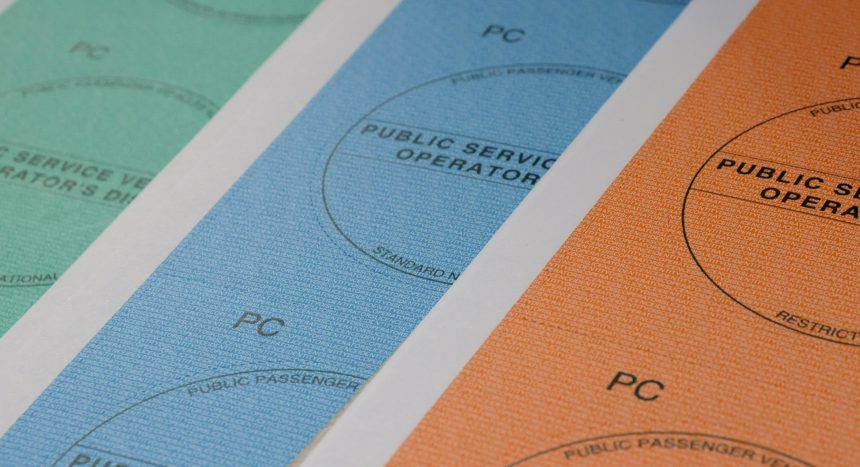Failing to park small vehicles at its authorised operating centres has led to the O-Licence held by Bristol-based SJ and JM Munden Ltd being cut from 50 vehicles to 40 by Traffic Commissioner (TC) Kevin Rooney, who also disqualified former director Simon Munden from acting as a Transport Manager (TM) indefinitely.
Mr Rooney said that there were two operating centres in Bristol: One at Freestone Road, St Philip’s, for 10 vehicles, and another at Emery Road, Brislington, for 40 vehicles.
The directors were Simon Munden and his son James. Simon Munden was the nominated TM along with Alan Peters. The addition of Mr Peters as TM came about following an increase in authorisation from 40 vehicles to 50 in January 2022. At that time, an undertaking was added to the O-Licence to nominate a second TM by no later than 30 June 2022.
That nomination – made on 30 June 2022 – was not referred to Mr Rooney, which was surprising given that Mr Peters was named as an external TM and already responsible for 15 vehicles at Abus Ltd and four on his own sole trader licence.
It was now clear from a review of the application that Mr Peters was indeed open in that he sought responsibility only for 10 vehicles that were to be based at Freestone Road. However, he was told that Freestone Road was never used to park vehicles, and so Mr Peters formed the view that his responsibility never arose.
‘Cynical move’
It was said that drivers keeping their vehicles at home was the only business model that made the company’s Bristol City Council contracts viable.
The issue with that was how the company bid for those contracts knowing that they could not be undertaken viably while using the listed operating centres. It was a commercial decision that was likely to have undercut any competitors that based their bids on a legal business model. As such, Mr Rooney found that it was a cynical move.
The TC was told that the company had 45 vehicles of over nine seats, and that there were 32 vehicles with fewer than nine seats. However, until this summer, all vehicles of the smaller size operated for Bristol City Council did so under an exemption for “disabled passenger vehicles” – basically, as ambulances.
Bristol City Council told Mr Rooney how a taxi operator had challenged that position, leading to different legal advice that meant all vehicles of that size would need to be operated under an O-Licence.
Mischief scope
Operating small vehicles on a PSV O-Licence created “a myriad of opportunities for mischief,” TC Rooney found. For that reason, permission to do so required an operator to accept several ways of working.
Those were based on a generic starting point but could be tailored to individual requirements. They generally set requirements to reflect those in legislation such as the means of charging, and to enable enforceability.
One such undertaking attached to this O-Licence was as follows: “The operator will advise the TC of the make, model and registration number of vehicles used under that licence and will advise of any changes.”
It was accepted that that undertaking was not complied with. Mr Rooney was told it was because the company did not know how to update vehicle details on the licensing system. That was not a reasonable excuse.
Vehicles had routinely been parked at places other than the nominated operating centres. They were all Ford Transit minibuses, equivalent in size to a 3,500kg GVW long-wheelbase van.
The operating centres of such vans used as goods vehicles are not regulated, even when they fell within scope of O-Licensing due to international operations. But that was not the point. Parliament decided that passenger vehicles with more than nine seats should be regulated as PSVs, and the law applied equally to them.
Simon Munden acted in a grossly dishonest manner in relation to the steps he took to make it appear that there were two active TMs on the licence, TC Rooney found. Mr Munden acted cynically in bidding for contracts that he knew were not viable with a legal business model, and he perpetuated that by not regularising the operation when put on notice of parking issues, putting, and retaining, commercial gain ahead of compliance with the law.
As TM, he was the root cause of the stated inspection frequency being breached over many years despite signing numerous O-Licence continuations. He was also responsible for failing to comply with the small vehicle undertaking. If a TM could not be trusted to champion compliance over everything else, then they simply could not remain as TM.
No revocation
The extent and duration of the parking abuse and the second TM sham put this case into revocation and disqualification territory.
What caused the TC to step back from that was the resignation of Simon Munden as a statutory director. He was not so naïve that he believed that would be the end of Mr Munden’s involvement in the business. It was his business that he had grown with his family, and a continuing interest after all those years was
inevitable.
It would be for James Munden to ensure that his father did not jeopardise compliance and did not seek to act as a de facto or shadow director. If that was found to be the case, it was difficult to see how the O-Licence could survive.
The main driver of regulatory action in this case was to right the wrong of the increase to 50 vehicles that was granted on a false pretence, and the ongoing, long-term commercial gain achieved by not using the nominated operating centres.
A very significant curtailment could be justified, but James Munden must also recognise the wider background. It seemed inevitable that the business would lose the contracts with Bristol City Council for the small vehicles, which was something like a one-third reduction in fleet size, albeit the remaining vehicles were larger.
A curtailment to 40 vehicles reset the clock to where it was prior to the second TM issues arising. In Mr Rooney’s judgement, it was a fair reduction in commercial earning power to offset the parking benefits unfairly accrued. Taken with the City Council change in position, the operation would be cut in size by almost half.



























